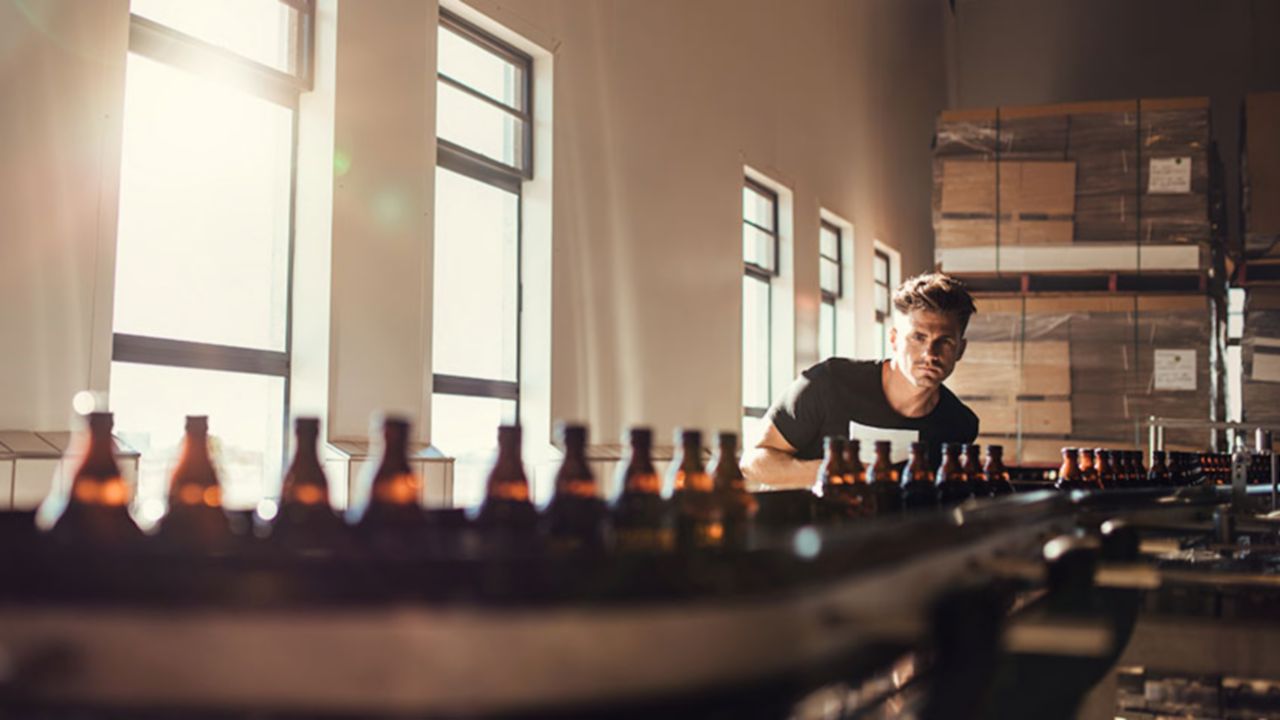The foundation-level classes required for Fermentation Science and Technology majors are scientifically rigorous, including organic chemistry, microbiology and physics. Adding to the challenge were the university’s ambitious goals for a state-of-the-art program that would meet the needs of the brewing industry – both commercial and craft – now and in the future. That’s why students are steeped in the technological side of the brewing business – specifically, advanced automation.
“We are the land-grant university, which means we have a public responsibility to provide research and education that will serve the needs of students and the local economy,” Callaway explained. “Universities like ours have been helping farmers for decades with agricultural research and extension services. Today, the brewing industry is a major part of our economy, so we have a duty to support them.”
To fulfill that mission, the program operates two separate breweries on campus. One is a microbrewery inside the Lory Student Center, where students produce and serve their craft beer to the public.
“The brewpub is very representative of 90 percent of all the breweries in the world, because most are small, even tiny,” Callaway explained.
The academic and research heart of the program, however, lies within the nearby Gifford Building. Contained here are classrooms and research laboratories, where students take a deep dive into brewing science, quality assurance, operational technology, and many other highly focused areas beyond the brewing process alone. The building houses a small-scale commercial-style brewery where students gain exposure to brewing equipment with advanced capabilities representative of those found at a MillerCoors or Anheuser-Busch facility.
Giants in the beer-making industry have long depended on automated brewing processes to satisfy their legions of consumers. Today, craft brewers are increasingly investing in precise control technologies for the same reason.
“Initially, some in the craft scene were resistant to automation because they thought everything should be done by hand for a more artisanal feel,” Callaway said. “But as companies grew, the realities of the marketplace set in. If you want to consistently brew a flagship product, you need a reliable, consistent process.”
Standards-Based Solution
Dan Malyszko is the automation guru for the university’s Fermentation Science and Technology program. He’s been active in the program since the beginning, serving as a regular guest speaker in the program’s brewing classes. Today, Malyszko is a member of the program’s industry advisory board.
Malyszko’s full-time job is director of operations and lead engineer at Malisko Engineering, a systems integration company based in St. Louis, MO with a branch office in Denver. His experience in the brewing industry runs deep, including a stint as a brewing production supervisor. He’s also a CSU alumnus.

